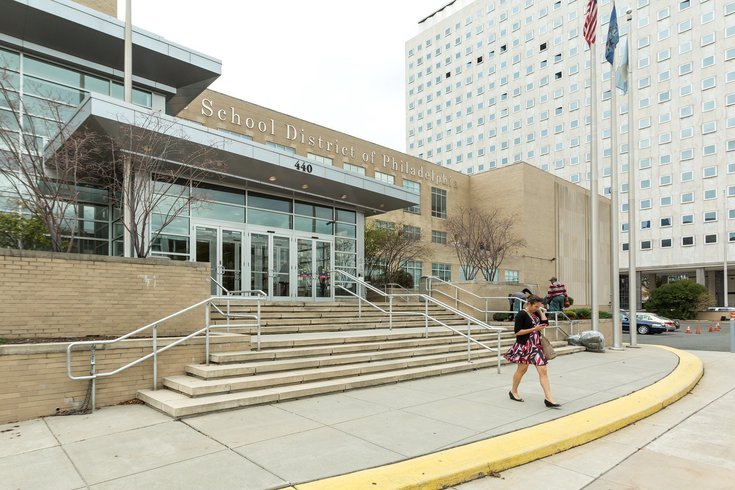
December 19, 2021
 Thom Carroll/For PhillyVoice
Thom Carroll/For PhillyVoice
A new School District of Philadelphia policy that would place all qualified magnet high school applicants into a lottery-based system for enrollment will continue despite concerns from parents and community members.
After months of controversy and discussions by parents, families, and even City Council, the School District of Philadelphia has elected to keep its new magnet high school admissions policy and determine its success on a yearly basis.
The policy, which places all qualified applicants to Philly's top special admissions schools into a lottery-based system for enrollment, is lauded by District officials as a way to enhance equity in admissions at those schools.
Preference was given to several ZIP codes, primarily in North Philadelphia, to increase admissions and enrollment of Black and brown students from those communities in the cities top-performing magnet schools.
The policy primarily impacts several of the highest performing special admissions middle and high schools in the city, including Central High School, Masterman School, Carver High School, Parkway Center City, and Academy at Palumbo.
Parents and families of middle schoolers at special admissions schools in the city began raising concerns over this issue during the school selection window, saying they were under the impression that their children would be given preference in admission to magnet high schools in Philadelphia based on their enrollment in magnet middle schools.
Parents say there was a long-standing practice of preference for students who would often feed into the high school program.
The policy, which was announced just days before the school selection window opened in early fall, caught parents of special admissions students and eighth grade students looking to apply for magnet high schools by surprise as they tried to navigate the application process.
District officials disagreed with the notion that students at magnet middle schools were given preference for admission to high schools.
"There's a process that takes place in each of these schools to be admitted to the high school. It's called the school selection process," Karyn Lynch, the District's chief of student support services told KYW in November. "They would have to go through that process in order for that to happen, so I'm not sure how there would be automatic admission at the high school."
At a Dec. 15 City Council hearing of the Committee on Education, advocates and critics alike testified on the new criteria-based policy.
Councilmember David Oh provided a statement at the start of the hearing about a family within his constituency, who explained how they believed their son would be put at a disadvantage for admission to Central High School based on this new policy.
Oh noted that, for this particular family, the reliance of a machine-scored writing test and the lack of importance of standardized test scores were just some of the reasons they felt insecure about whether their son would be able to attend a magnet high school, despite having a high GPA.
"The fundamental question is: is this system better than what had existed before," Oh said, ahead of nearly over 30 testimonies from parents, both in support and opposition of the policy.
Many of those in opposition to the policy felt that way because of some of the individual changes to the application and admissions process, including a machine-scored writing test in lieu of an essay, or of test scores, which would be analyzed to determine eligibility for admission.
Those who spoke at the hearing in opposition to the policy—including education advocate and City Councilmember Helen Gym—spoke to the concept of blind algorithmic admissions as potentially "inequitable," noting that removing all human bias from the school selection process will not provide the equity that the School District is looking for.
Supporters of the policy did tend to agree that using a machine-scoring system for admissions essays was concerning, but that the lottery-based system is not inequitable if it only includes students who meet the admissions requirements.
Superintendent William Hite tells KYW that while the School District has no intentions of getting rid of the new policy that was implemented throughout this fall's school selection process, it was set up with the idea that it could be revisited in years to come depending on its effectiveness in achieving equity at these top-performing magnet schools.